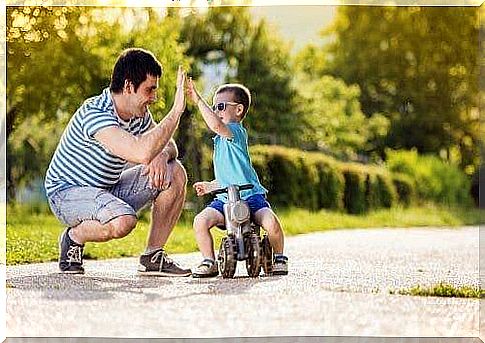Peer Pressure: How You Can Help Your Child Deal With It
During puberty and adolescence, friends often become a mirror in which children want to see their own reflection. But what if a group of friends pressurize your kids to do something? Today we’re going to look at what you can do to help your child deal with peer pressure.

During puberty, our children’s friends become their role models. The youngsters no longer pay attention to their parents, but instead look to their friends to decide how to dress, talk and behave. These role models of the same age can influence the young people in one direction or the other. But what can you do to help your teen deal with this peer pressure?
We all went through this phase where it was all about belonging. Belonging to a group is particularly important between the ages of 12 and 20. Therefore peer pressure becomes an important issue in this phase of life; it can affect children’s lives in both good and bad ways.
How can peer pressure be overcome?
Going against what your friends want or find good can be extremely difficult at this stage of life. We want to analyze this situation in more detail below.
What is peer pressure?

The people around us inevitably influence our lives in one way or another. Friends are more of an impact during adolescence than at other times in life. This is because the children are keen to identify with their peers in order to:
- To be like those who admire you.
- To be part of a group.
- Not feeling different or strange.
- To experiment.
- To avoid being ridiculed for being “different”.
Making decisions is difficult enough, especially when young people are confronted with conflicting opinions. And that’s exactly what young people experience. Peers pull them in one direction, although the teens often believe they should be doing exactly the opposite. This is why this peer pressure can be so difficult for adolescents to deal with.
Is peer pressure always a negative?
When we talk about peer pressure, we tend to focus on the negatives. But there are actually two sides to this phenomenon. As we mentioned earlier, by peer pressure we mean the influence that peers have on children and adolescents. And this influence can be positive or negative.
We want to illustrate this with an example. If a friend who is an avid reader recommends a book for your child to read, chances are your child will read that book too. Therefore, peer pressure could be seen as a positive thing in this case.
However , peer pressure is often more negative. For example, when friends try to pressure others, drink alcohol, use drugs, skip classes, or make fun of or bully a classmate.
How can parents help their children deal with peer pressure?
As parents, it is our responsibility to guide our children on a path that contributes to their proper development. This means that we must protect them from participating in any activity or act that could compromise their physical or emotional integrity.
Therefore, we would like to give you some tips below on how you can help your children deal with peer pressure. Also, keep in mind that you can’t start early enough. So there is no reason to wait until your children reach puberty to implement the recommendations below.
1. Teach your children to say “no”

One of the first words children usually learn is “no”. After numerous explanations, we then also teach them the word “yes”. However, it is essential that parents train their children to assess situations and to say “no” when necessary.
- You can practice this with your child in a role play or reenact situations in which your child has to say no to something.
- In addition, it is also very important that you enable your children to practice and observe this behavior on a caregiver who is important to them: yourself. Therefore, you should always make sure that you listen to their “no” and they do Supported at a young age so that the children learn that saying no is safe.
2. Peer pressure: Teach your children to think for themselves
If children simply go with the flow, it can endanger their health and integrity. Therefore, you should teach them to think for themselves, consider possible consequences, and weigh the best and worst scenarios.
3. Have a dialogue with your children
Talking to your children and telling them stories from your own youth can build trust. In addition , it also helps to bridge the age difference between you and shows your children that you too made mistakes when they were old.
4. Peer pressure: Promote healthy self-esteem in your children

The children who have a healthy sense of self-worth are less susceptible to influence than those who seek permanent recognition and attention from their peers. It is therefore very important that you help your children develop good self-esteem so that they can better deal with peer pressure.
If necessary, you can also get additional support from a specialist.
5. Provide your children with tools to help them distinguish between right and wrong
In order to be able to make decisions, every child and teenager must learn to identify and differentiate between right and wrong attitudes and actions. You should teach them that too.
Teaching your children strong values is an important part of keeping them safe from problematic situations.
6. Make sure your child has positive friends
A 2010 study found that teenagers with friends who smoke and use other harmful substances are more likely to do so too. It is also less likely that adolescents, their friends or peer groups will not participate in these activities, smoke or consume other harmful substances.
Of course, you can’t pick your children’s friends for them, but you can guide them to choose friends who choose positive things.
These are just a few of the strategies you can use to help your children cope better with peer pressure. Additionally, we want to encourage you to talk to your children, learn more about their interests, and get to know their friends. That way, they’ll feel less alone or under pressure, and it will be easier for them to confide in you when they’re struggling.









